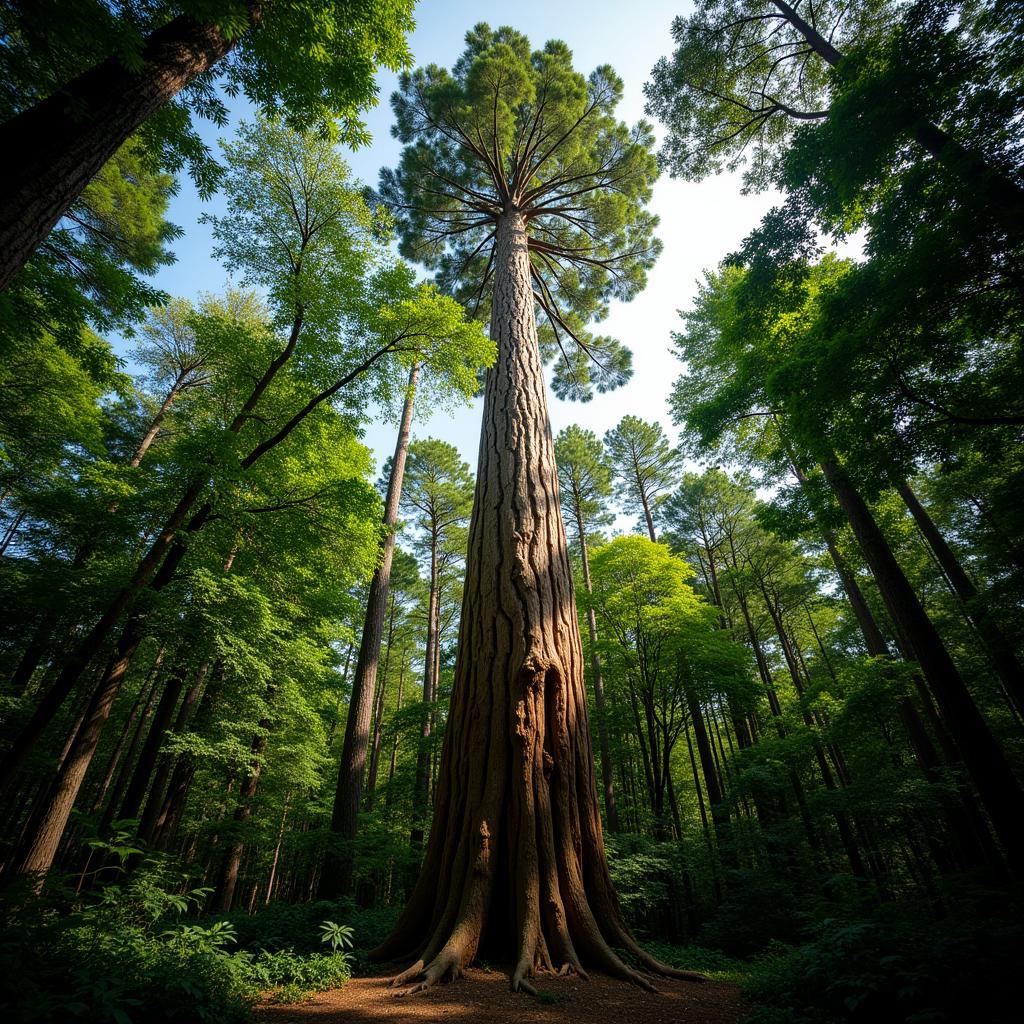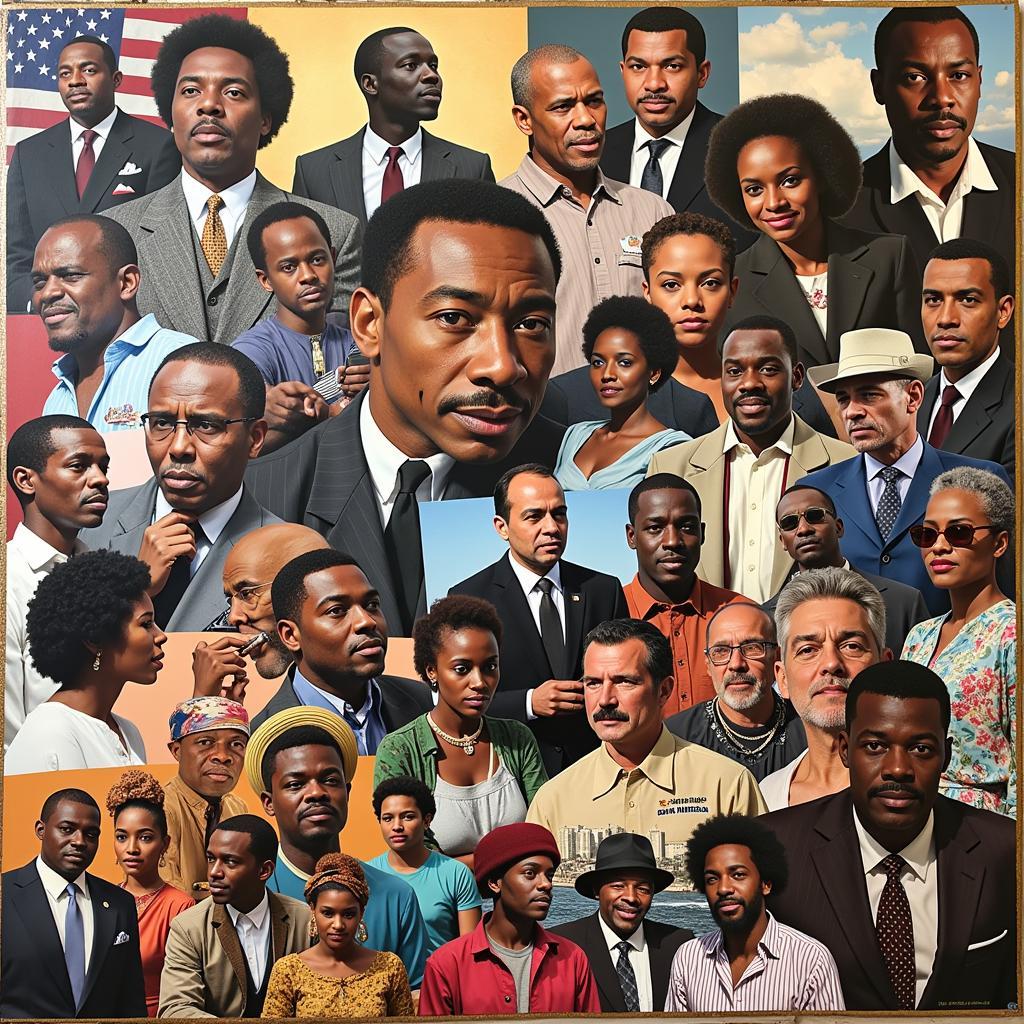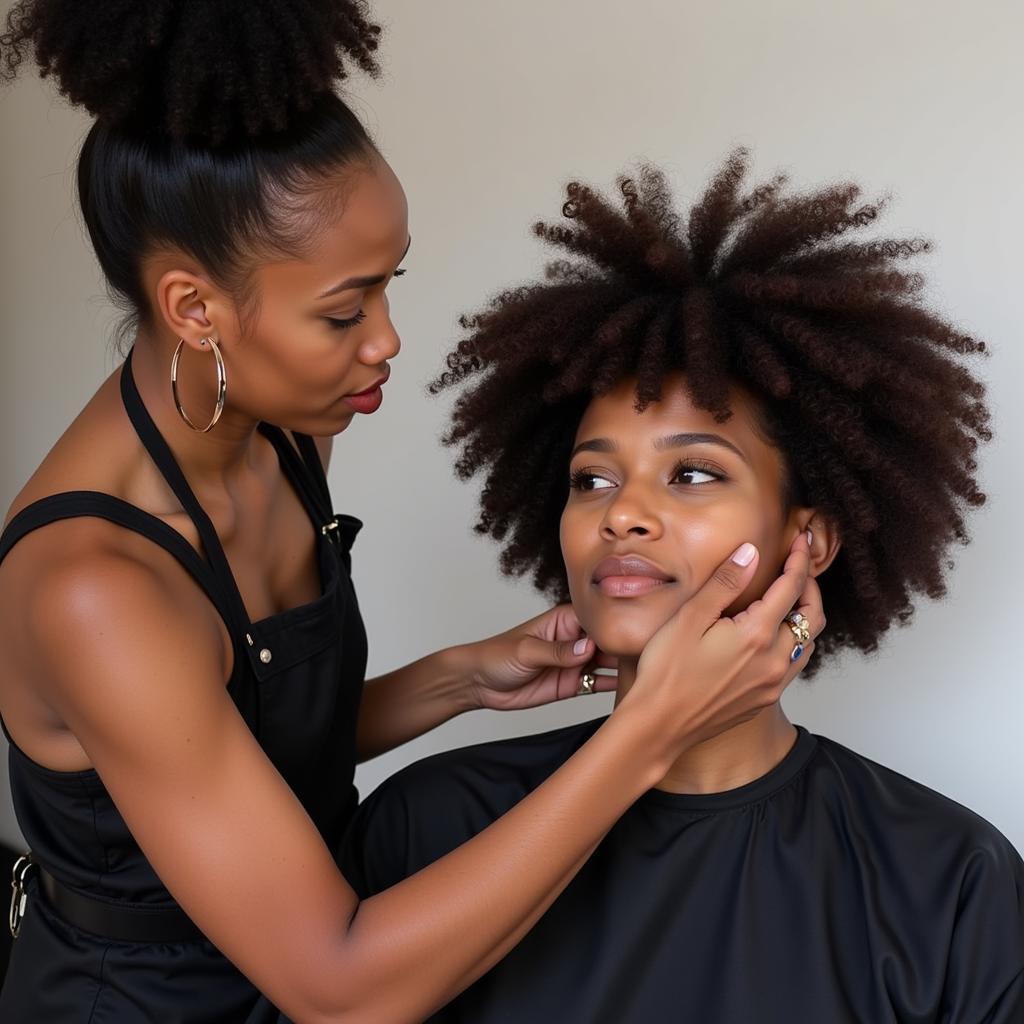African Hardwood Trees List: A Guide to Majestic Species
Africa, a continent teeming with biodiversity, boasts a remarkable array of hardwood trees, each with unique properties and cultural significance. This guide explores the diverse world of African hardwood trees, providing a valuable resource for enthusiasts, researchers, and anyone captivated by the continent’s natural wonders.
From the dense forests of the Congo Basin to the savannas of East Africa, hardwood trees play a crucial role in the ecological balance and cultural heritage of the continent. They provide shelter, food, and medicine for countless species, while also contributing to local economies through timber production and traditional crafts. Let’s delve into the fascinating world of these majestic trees.
Exploring the Diversity of African Hardwood Trees
African hardwood trees are renowned for their durability, density, and resistance to decay, making them highly sought after for various applications. They are used in construction, furniture making, musical instruments, and even traditional medicine. This diversity is reflected in the wide range of species found across the continent, each adapted to specific environmental conditions.
Iroko: The Weather-Resistant Wonder
Iroko, also known as Milicia excelsa, is a large deciduous tree native to West and Central Africa. Its wood is highly valued for its durability and resistance to weather, insects, and rot. This makes it a popular choice for outdoor furniture, flooring, and boat building. Iroko wood also exhibits a beautiful golden-brown hue that darkens with age, adding to its appeal.
African Mahogany: A Symbol of Elegance
African Mahogany, encompassing several species within the Khaya genus, is prized for its rich reddish-brown color, beautiful grain patterns, and excellent workability. It is commonly used in high-end furniture, cabinetry, and musical instruments, adding a touch of elegance to any space.
Traditionally, African Mahogany has been used to craft ceremonial masks, sculptures, and other cultural artifacts, reflecting its significance in various African societies. Dr. Anika Nkrumah, a renowned botanist specializing in African flora, notes, “The cultural significance of African Mahogany is deeply intertwined with its practical uses, showcasing the interconnectedness of nature and human society.”
African Blackwood: A Rare and Precious Gem
African Blackwood, scientifically known as Dalbergia melanoxylon, is one of the most valuable and sought-after hardwoods in the world. Its dense, dark wood is highly prized for its tonal qualities and is used to make high-quality woodwind instruments, particularly clarinets and oboes. Due to its slow growth rate and limited distribution, African Blackwood is considered a rare and precious timber.
Afromosia: The Versatile Timber
Afromosia, or Pericopsis elata, is known for its strength, stability, and attractive appearance. Its golden-brown wood is often used in flooring, joinery, and boat building. Afromosia is also appreciated for its resistance to insects and decay, making it suitable for both indoor and outdoor applications.
Professor Joseph Otieno, a leading expert in sustainable forestry in East Africa, emphasizes, “Sustainable harvesting practices are crucial to ensure the long-term survival of valuable hardwood species like Afromosia.” This highlights the importance of responsible forest management in preserving these natural treasures for future generations.
 Afromosia tree reaching towards the forest canopy, demonstrating its height and growth habit.
Afromosia tree reaching towards the forest canopy, demonstrating its height and growth habit.
What are some common uses of African hardwoods?
African hardwoods are used for a variety of purposes, including furniture making, construction, flooring, and musical instrument crafting.
Are all African hardwood trees endangered?
While some African hardwood trees are endangered due to over-exploitation and habitat loss, not all species face the same level of threat. Sustainable forestry practices are essential to protect these valuable resources. Have you heard of the African blackwood bagpipes?
Conclusion
The diverse list of African hardwood trees represents a treasure trove of natural resources and cultural heritage. From the iconic Iroko to the rare African Blackwood, these trees contribute significantly to the continent’s ecological and economic landscape. Understanding their unique properties and cultural significance is crucial for appreciating the rich biodiversity of Africa and promoting sustainable practices to ensure their preservation for generations to come. Remember the African Hardwood Trees List is extensive and exploring these species further can deepen your understanding of Africa’s natural wonders. You might be interested in learning more about African countries illegal wildlife trade as well.
FAQ
- What is the hardest African hardwood?
- What are the different types of African Mahogany?
- Where can I find sustainable sources of African hardwood?
- How can I identify different African hardwood species?
- What are the traditional uses of African hardwood trees?
- Are there any regulations on the trade of African hardwoods?
- How does climate change impact African hardwood forests?
Scenarios
- Scenario 1: You are a furniture maker looking for a durable and beautiful wood for your next project. African hardwoods like Mahogany or Iroko would be excellent choices.
- Scenario 2: You are a musician searching for the perfect wood for a new instrument. African Blackwood is renowned for its tonal qualities, particularly for woodwind instruments.
- Scenario 3: You are an architect designing a building with sustainable and locally sourced materials. Afromosia, with its strength and durability, could be a suitable option for flooring or structural elements.
Further Exploration
For more information on specific African hardwood species, consider researching their individual characteristics, distribution, and conservation status. You can also explore related topics such as sustainable forestry practices in Africa and the impact of climate change on African forests.
If you need assistance, please contact us at Phone: +255768904061, Email: kaka.mag@gmail.com or visit our address: Mbarali DC Mawindi, Kangaga, Tanzania. We have a 24/7 customer service team.

